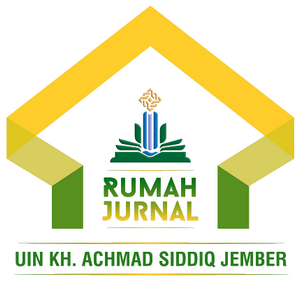Normative Construction of Obligations to Balance the Parenting Roles By Working Partners in Gender Equality Perspective
DOI:
https://doi.org/10.35719/annisa.v16i2.174One contemporary issue in family law today concerns the division of responsibilities between parents who both have jobs, particularly in balancing their roles in child rearing. The normative construction of the duty to balance parenting roles between working couples, viewed from the perspective of gender equality, needs to be addressed. The purpose of this research is to formulate normative provisions regarding the duty of balancing childcare responsibilities by working couples. This study adopts a library research method with an interdisciplinary approach, examining the problem from various perspectives, including law and gender. The research results indicate that the formulation of normative duties in childcare is not entirely adequate in protecting the rights of the child. This inadequacy leads to gender injustice, specifically the double burden placed on women. The gender injustice is also caused by the absence of clear and explicit legal provisions regulating the balancing of childcare roles by working couples. Therefore, it is proposed that the balancing of childcare roles be implemented by amending Article 45 of Law No. 1 of 1974 concerning marriage, incorporating language that mandates the duty of balancing childcare roles by working couples.
References
Afandi, Agus. “Bentuk-Bentuk Perilaku Bias Gender.” LENTERA: Journal of Gender of Children Studies 1, no. 1 (2019): 4–5.
Al-Mahally, Jalaluddin As-Suyuthi dan Jalaluddin Muhammad Ibnu Ahmad. Tafsir Jalalain. tnp, n.d.
Aldianto, Rudi. “Kesetaraan Gender Mayarakat Transmigrasi Etnis Jawa.” Jurnal Equilibrium Pendidikan Sosiologi 3, no. 1 (2015): 89.
Fitriani, Listia. “Peran Pola Asuh Orang Tua Dalam Mengembangkan Kecerdasan Emosi Anak.” LENTERA: Journal of Gender of Children Studies 8, no. 1 (2015): 102–4.
Graham, D.S. Keberagamaan Gender Di Indonesia. Jakarta: Yayasan Pustaka Obor Indonesia, 2018.
Khaelan, H. Filsafat Pancasila, Edisi Pertama. Yogyakarta: Paradigma, 2002.
Kiram, Muhammad Zawil. “‘Is Our Child Too Young To Learn Gender Equality? An Interpretation of Gender Education in Aceh Families.’” Gender Equality: International Journal of Child and Gender Studies, 6, no. 2 (2020): 1.
Moh. Idris, Ramulyo. Hukum Perkawinan Islam: Suatu Analisis Dari Undang-Undang No. 1 Tahun 1974 Dan Kompilasi Hukum Islam. Jakarta: Bumi Aksara, 2004.
Nasution, Khoiruddin. Smart Dan Sukses. Yogyakarta: Tazzafa dan Academia, 2008.
Pertiwi, Eka Prasetya. “‘Diskursus Keadilan Gender Terhadap Tumbuh Kembang Anak Usia Dini.’” Widya Kumara Jurnal Pendidikan Anak Usia Dini 2, no. 2 (2021): 201.
Polsoskum, Deputi Bidang PUG Bidang. Parameter Kesetaraan Gender Dalam Pembentukan Peraturan Perundang-Undangan. Jakarta: tnp, 2012.
Qomariah, Dede Nurul. “Persepsi Masyarakat Mengenai Kesetaraan Gender Dalam Keluarga.” Jendela PLS: Jurnal Cendekiawan Ilmiah Pendidikan Luar Sekolah 4, no. 2 (2019): 16.
QS. Al-Luqman, n.d.
Rakhman. “Islam Dan Egalitarisme: Ruang Terbuka Kesetaraan Gender”, At-Ta’Wil.” Jurnal Pengkajian Al-Qur’an Dan Turast 1, no. 1 (2019): 62–73.
RI, Departemen Agama. Al-Qur’an Dan Terjemahannya. Bandung: Dipenogoro, 2000.
Siti Robi’ah & Nur Hidayat. “The Role of Mothers in Building Children’s Character According to an Islamic Perspective.” An-Nisa : Journal of Gender Studies 16, no. 1 (2023): 8.
Syuhudi, Muhammad Irfan. “Berbagi Kuasa: Kesetaraan Peran Suami Istri Dalam Rumah Tangga.” Jendela PLS: Jurnal Cendekiawan Ilmiah Pendidikan Luar Sekolah 4, no. 2 (2019): 19.
Ulfatun, H dan Najahan. “M. “Gender And Politicts: Keterlibatan Perempuan Dalam Pembangunan Politik.” SAWWA 12, no. 3 (2017): 415.
Zaelani, Abdul Qodir. “Pola Asuh Anak Dalam Perspektif Yuridis Dan Psikologi Pendidikan.” ASAS 6, no. 2 (2014): 35.
Zulkifli Ismail, Melani Pita Lestari, Panti Rahayu dan Fransiska Novita Eleanora. “Kesetaraan Gender Ditinjau Dari Sudut Pandang Normatif Dan Sosiologis.” SASI 26, no. 2 (2020): 158–59.
Downloads
Section
License
Copyright (c) 2023 Irma Nur Rahmy

This work is licensed under a Creative Commons Attribution-NonCommercial 4.0 International License.












 AN-NISA licensed under Creative Commons Attribution-NonCommercial 4.0 International License.
AN-NISA licensed under Creative Commons Attribution-NonCommercial 4.0 International License.